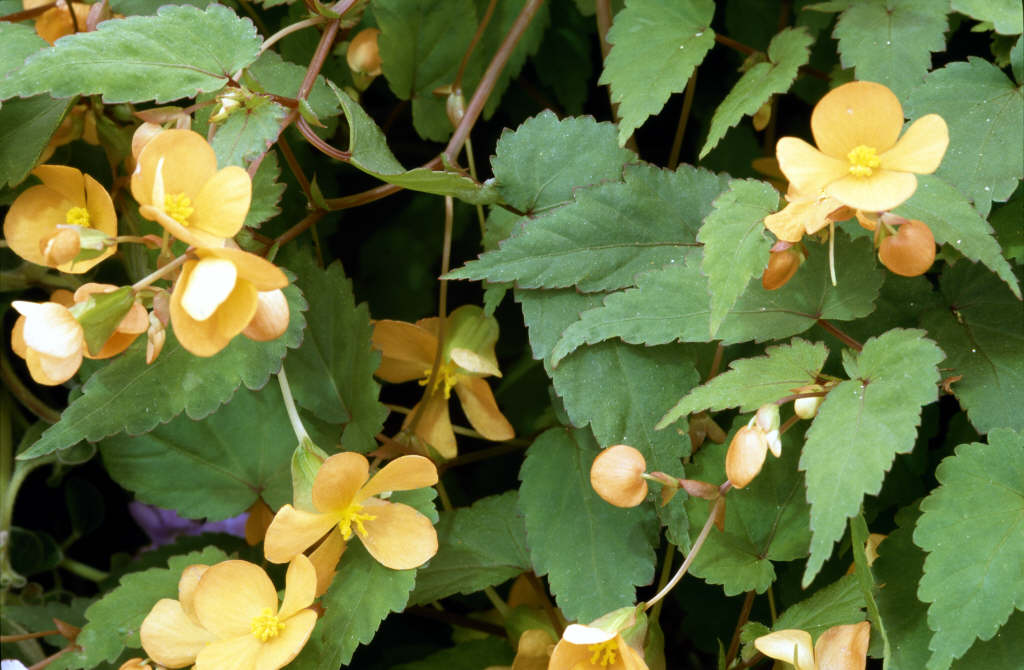Size
Ultimate height
0.1–0.5 metresTime to ultimate height
2–5 yearsUltimate spread
0.1–0.5 metresGrowing conditions
Moisture
Well–drainedpH
Acid, NeutralColour & scent
| Stem | Flower | Foliage | Fruit | |
| Spring | Red | Green | ||
|---|---|---|---|---|
| Summer | Red | Orange | Green | |
| Autumn | Red | Orange | Green | |
| Winter |
Position
- Partial shade
Aspect
East–facing or South–facing or West–facing
Exposure
Sheltered Hardiness
H2Botanical details
- Family
- Begoniaceae
- Native to GB / Ireland
- No
- Foliage
- Deciduous
- Habit
- Trailing
- Potentially harmful
- Ornamental bulbs - not to be eaten. Wear gloves and other protective equipment when handling. Pets: Ornamental bulbs - not to be eaten - see the HTA guide to potentially harmful plants for further information and useful contact numbers
- Genus
Begonia can be annuals, evergreen or deciduous perennials or shrubs, with fibrous, tuberous or rhizomatous roots and usually asymmetrical leaves, often strikingly patterned, and small or large flowers, both male and female in the same cluster
- Name status
Correct
- Horticultural Group
- Tuberhybrida begonias are bushy tuberous perennials with glossy leaves and usually double flowers in small clusters in summer; most are dormant in winter
- Plant range
- SE Africa
How to grow
Cultivation
Grow outdoors in well-drained humus-rich, neutral to acidic soil. Grow in good but not direct light in a frost-free area. Under glass grow in well drained, peat-free compost. Will not tolerate water logging. See Begonias: outdoors for further advice
Propagation
Propagate by seed, stem tip or leaf cuttings
Suggested planting locations and garden types
- Cottage and informal garden
- Patio and container plants
- Mediterranean climate plants
- Low Maintenance
Pruning
No pruning required
Pests
May be susceptible to caterpillars, mealy bugs, mites, glasshouse thrips, vine weevil and aphids
Diseases
May be susceptible to grey moulds, powdery mildews, stem rot and rhizome rot
Get involved
The RHS is the UK’s gardening charity, helping people and plants to grow - nurturing a healthier, happier world, one person and one plant at a time.
